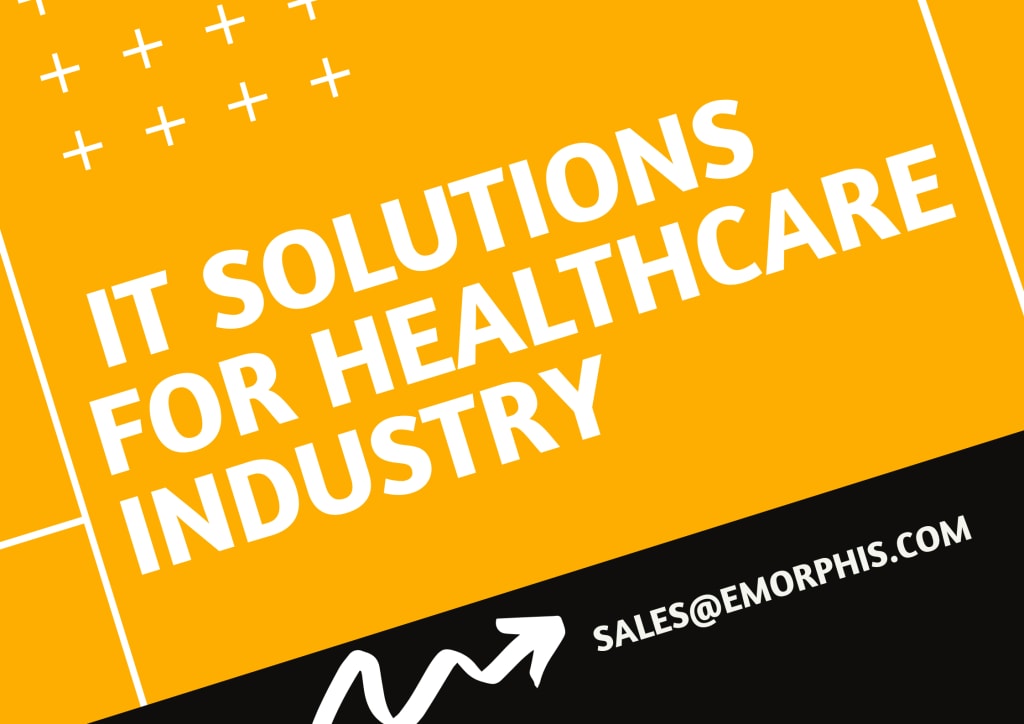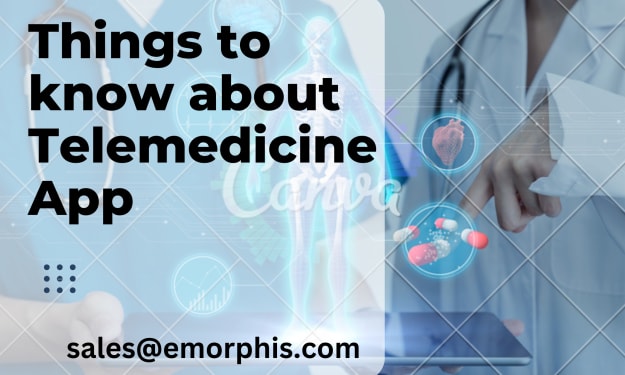IT Solutions for Healthcare Industry
Software Solution

Healthcare Software solution
Healthcare software solutions are designed to help streamline the healthcare industry and make it easier for healthcare professionals to provide care to their patients. These solutions can range from medical records management systems to patient scheduling and billing software. By automating many of the processes involved in healthcare, these solutions can help reduce costs, improve patient care, and increase the efficiency of healthcare professionals.
One of the most common healthcare software solutions is an Electronic Medical Records (EMR) system. This type of system allows healthcare providers to store and manage all of their patient’s medical records in a central, secure location. This can make it easier to quickly access records when needed, as well as reduce paperwork. In addition, an EMR system can help providers better track patient care, as well as provide more accurate diagnoses and treatments.
Another popular healthcare software solution is a Patient Scheduling System. This type of system allows healthcare providers to easily schedule appointments with their patients. It can also provide reminders to patients when they need to come in for follow-up visits or other appointments. Additionally, many scheduling systems also allow providers to collect payments from the patient at the time of the appointment.
Finally, many healthcare providers are turning to billing software to help streamline their processes and maximize their revenue. Healthcare billing software solutions provide all the tools necessary for efficient and accurate billing, including automated claims submission, patient eligibility verification, revenue cycle management, and more.
Benefits of Healthcare Software Solutions
Healthcare software solutions can offer a range of benefits to organizations and individuals alike. For healthcare organizations, the benefits include improved patient care, increased productivity, better access to information, and reduced costs. For individuals, the benefits include improved access to healthcare services, improved communication with healthcare providers, and improved access to medical records. Here are some of the key benefits of healthcare software solutions:
1. Improved Patient Care: Healthcare software solutions provide healthcare providers with the tools and resources they need to provide high-quality patient care. By making information more readily available, healthcare providers can quickly access patient records and make informed decisions about treatment. Additionally, healthcare software solutions can enable improved communication between providers and patients, making it easier for patients to receive the care they need.
2. Increased Productivity: Healthcare software solutions can help healthcare organizations improve their efficiency and productivity by streamlining processes. By automating and streamlining tasks, healthcare organizations can complete more tasks in less time. This can lead to improved patient care, better access to information, and reduced costs.
3. Better Access to Information: Healthcare software solutions can provide healthcare providers with better access to patient records, lab results, and other health-related information. This can help healthcare providers make informed decisions about their patients' care.
4. Improved Communication: Healthcare software solutions can help healthcare providers communicate with each other more effectively. This can help ensure that all healthcare providers are on the same page when it comes to patient care.
5. Improved Efficiency: Healthcare software solutions can also improve the efficiency of healthcare providers. By eliminating paperwork and streamlining processes, healthcare software solutions can help healthcare providers save time and money.
6. Cost Savings: Healthcare software solutions can also help healthcare providers save money by reducing costs associated with storing and managing patient data. By reducing the amount of time spent manually entering and retrieving data, healthcare providers can save money that can be better spent on patient care.
7. Improved Quality of Care: Healthcare software solutions can help healthcare providers provide better care to their patients. By providing better access to patient records and other health-related information, healthcare providers can make more informed decisions about their patients' care.
8. Increased Patient Safety: Healthcare software solutions can help healthcare providers prevent medical errors by providing them with better access to patient records and other health-related information. This can help reduce the risk of medical errors and ensure that patients receive the highest quality of care.
What are the Types of Healthcare Software Solutions?
1. Electronic Health Record (EHR) Software: This type of software is for medical professionals to electronically store and manage patient information.
2. Practice Management Software: This software is designed to help streamline the day-to-day operations of a medical office, such as scheduling appointments, managing billing and coding, and tracking patient records.
3. Medical Billing Software: This software is designed to help healthcare providers accurately bill for services and manage accounts receivable.
4. Telemedicine Software: This software is designed to allow healthcare providers to connect with their patients remotely, via video conferencing or other digital platforms.
5. Population Health Management Software: This software is used to collect and analyze data across multiple patients to better understand the health of an entire population.
6. Analytics Software: This software is used to analyze health data and provide insights into how to better manage patient care.
7. Patient Portal Software: This software allows patients to access and manage their medical information and appointments online.
8. Clinical Decision Support Software: This software is designed to help healthcare providers make better decisions about patient care by providing personalized care recommendations.
Top Healthcare Technology Trends for 2023
1. Artificial Intelligence (AI): AI is becoming increasingly important in healthcare, as it allows healthcare providers to analyze huge amounts of data quickly and accurately. AI can be used to identify high-risk patients, create personalized treatments, and improve diagnosis accuracy.
2. Wearable/IoT Technology: Wearable/IoT technology is becoming more popular in healthcare, as it can be used to track vital signs, sleep patterns, and other health metrics. Wearable/IoT technology can also be used to provide patients with feedback so that they can make lifestyle changes based on their medical data.
3. Blockchain: Blockchain technology is becoming increasingly important in healthcare, as it can be used to securely store and share patient data. Additionally, blockchain technology can be used to automate billing and payment processes, reduce fraud, and improve data security.
4. Remote Monitoring: Remote monitoring is becoming more popular in healthcare, as it allows patients to receive care from the comfort of their own homes. Remote monitoring can also be used to reduce hospital visits and improve patient outcomes.
5. Augmented Reality (AR): AR is becoming increasingly important in healthcare, as it can be used to create interactive experiences for patients. Additionally, AR can be used to help healthcare professionals diagnose and treat patients more accurately.
6. Cloud Computing: Cloud computing is revolutionizing the healthcare sector, as it allows for the storage and sharing of large amounts of data in a secure manner. Additionally, cloud computing can be used to quickly transmit and receive medical images.
7. Robotics: Robotics is becoming increasingly important in healthcare, and robots are being used to assist in medical procedures, such as surgery and diagnostics. Additionally, robots can be used to transport medical supplies and medications within hospitals.
Conclusion
Healthcare software and applications have a promising future, and there are still many gaps to be filled in the relevant field. New applications for healthcare are always emerging and won't stop any time soon. Furthermore, embracing digitalized technology is receiving positive feedback from physicians and other medical professionals throughout the world.
About the Creator
Larisa Albanians
Hey, a healthcare technology solutions provider at emorphis, that is helping organizations to deliver better healthcare solutions.






Comments
There are no comments for this story
Be the first to respond and start the conversation.